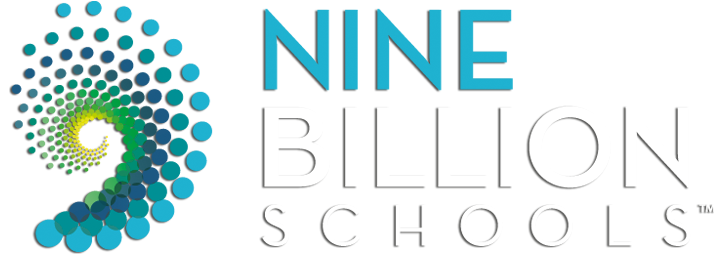For each and every person to truly flourish in life, they must commit to L3 Learning, or learning that is life-long, life-wide and life-deep. With this week’s launch of 9 Billion Schools: Why the World Needs Personalized, Lifelong Learning for All, we’ve presented a roadmap to engage L3 Learning. We’ve shared arguments and examples on a variety of topics such as:
Read MoreThe Blog
Today, the 9 Billion Schools Institute takes the next step in its mission to realize a world where personalized, lifelong learning is available to every person with the launch of 9 Billion Schools: Why the World Needs Personalized, Lifelong Learning for All.
Read MoreAcademics are the way in which we organize learning into a system that can be measured, validated and repeated generation by generation. It’s in the academic world, starting in preschool and continuing through university, where we learn how to learn. It’s where we first start to explore subjects, question narratives, find limits and determine how we can push them.
Read MoreWorkplace learning and L3 Learning go hand-in-hand, but for on-the-job learning to be life-long, life-wide, and life-deep, it has to be presented in a way win which employees have both a desire and an ability to engage with the content.
Read MoreYou may hear the word “imagination” and associate it with made-up things like unicorns and children making stuffed animals talk. While that is a fair affiliation, it is important to point out that engaging your imagination can also be a practical exercise; something we believe more adults should do.
Read MoreMany would agree that the underlying purpose of a school and all of its activities is to develop children as learners who are interested in the process of learning. But many people don’t realize that imagination plays an integral role in both the enjoyment and richness of education, and should be incorporated more often.
Read MoreThe third video in 9 Billion Schools video series explored learning at school, at work and in leisure time with Lauren Della Bella and futurist Brian David Johnson.
Read MoreKids entering formal education this year will enter the workforce in 2030. It’s important for educators to understand what skills will be necessary for future employment to accurately prepare students for the workforce. A number of jobs that exist today won’t exist in 2030, and many of the positions that still exist will require different skills.
Read MorePreparing people for the workplace means preparing people to learn, adapt and learn some more. It’s the second half of that statement—adapt and learn some more—that is at the heart of learning to learn. And learning to learn is central to workplace development.
Read MoreOur futurecasting exercise with Mercy McAuley High School set out to help them imagine what their new school will look like 10 years from now and to determine what steps they must take to realize that future. After presentations from various stakeholders on issues impacting the future of education, the group participated in a persona development exercise.
Read More




